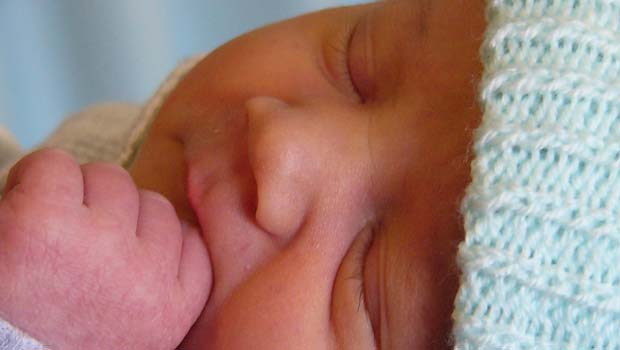A new study by the AAP (American Association of Pediatrics) reveal that new moms abandon breastfeeding too earlyl. New moms may plan to meet or exceed recommendations for breastfeeding their babies but more than two-thirds quit breastfeeding after just 3 months according a new study from the World Health Organization and the American Academy of Pediatrics.
While the study (below) doesn’t cite specific reasons for new moms giving up on breastfeeding earlier than they had planned, it’s safe to assume that difficulties in breastfeeding can be a major source of frustration. For expert tips on breastfeeding from a lactation consultant, see related posts below.
Here is some text regarding the American Academy of Pediatrics study on breastfeeding statistics…
MOST MOTHERS PLAN TO EXCLUSIVELY BREAST-FEED FOR AT LEAST THREE MONTHS, BUT ONLY ONE-THIRD DO
The World Health Organization and the American Academy of Pediatrics recommend that mothers breast-feed exclusively (only breast milk and medications or micronutrient supplements, but no other liquids or solids) for about the first 6 months of their infant’s life. Studies have shown that most mothers in the U.S. do not exclusively breast-feed their infants for six months, but little was known about how long mothers had planned to breast-feed. In a new study, “Baby-Friendly Hospital Practices and Meeting Exclusive Breastfeeding Intention,” in the July 2012 Pediatrics (published online June 4), researchers at the Centers for Disease Control and Prevention surveyed pregnant women about their intentions for exclusive breast-feeding and then followed up with monthly surveys over the next year. The study authors found 85 percent of mothers who planned to exclusively breast-feed intended to do so for three months or longer. However, only 32.4 percent of mothers exclusively breast-fed for as long as they intended. Mothers who were married and who already had a previous baby were more likely to breast-feed as long as they had planned. Other factors that improved the chances a mother would meet her goals included beginning breast-feeding within an hour of birth and not being given supplemental formula feedings or pacifiers in the hospital. Mothers who were obese, smoked or had a longer intended breast-feeding duration were less likely to meet their intention. Study authors conclude that increasing Baby-Friendly Hospital practices, particularly giving only breast milk in the hospital, may help more mothers breast-feed for as long as they intend.
SOURCE: aap.org.


